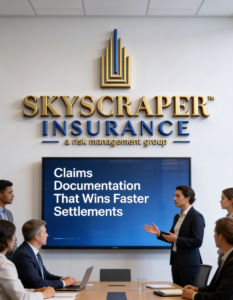To our Community,
We can only assume everyone is looking forward to putting 2020 in the rearview mirror. Our lives this past year have been impacted in a way that many if not most of us could not have foreseen. With the advent of a vaccine finally upon us We can only assume our collective hope is a way of life more like what we were used to.
Many have suffered gravely this year, from health impacts due to the virus to financial hardships or a combination of both. While others have had the good fortune to see little impact other than dealing with stay-at-home orders depending on the state, those folks may look back at this experience as a life lesson. That life is fragile, proof in that something microscopic can take one’s life. On a more positive note, I live in a neighborhood where I rarely saw my neighbors outside. This past year though you would be hard-pressed to not see entire families either riding bikes or just taking a stroll. Gatherings in driveways with neighbors practicing social distancing but at least human interaction that we all craved. We can choose to look back at 2020 with disdain and many will have a reason for that due to the loss of a loved one or just the sheer impact this experience has had on their life. I hope that we all grasp whatever good we can from it and focus on that, that we endeavor to practice the family closeness many got to experience and the neighborly culture that seemed to persevere. My wish is that each of you is blessed this holiday season with health, family, and a prosperous 2021.
Employers must first seek an accommodation for employees who refuse to be vaccinated for COVID-19 for disability or religious-related reasons before taking any action against them, the U.S. Equal Employment Opportunity Commission said Wednesday in updated guidance.
Employers cannot automatically terminate workers who refuse the vaccine because of a disability or religious beliefs before first conducting an individualized assessment that considers whether the workers pose a direct threat, said the agency in its update of COVID-19 related guidance, which has been expected by experts.
In focusing on disability-related issues, the four factors to be considered in determining whether there is a direct threat are: the severity of the potential harm; the likelihood the potential harm will occur; and the potential harm’s imminence, the agency said.
Employers cannot exclude the employee from the workplace “unless there is no way to provide a reasonable accommodation (absent undue hardship) that would eliminate or reduce this risk, so the unvaccinated employee does not pose a direct threat,” the guidance said.
Before terminating an employee, employers must also determine if any other rights apply under equal employment opportunity laws or other federal, state or local authorities, it said.
Similarly, employers must provide a reasonable accommodation if a worker refuses to be vaccinated because of “sincerely held” religious beliefs, unless it poses an undue hardship under Title VII of the Civil Rights Act of 1964, the guidance said.
Among the other vaccine-related questions addressed by the new guidance, it states the vaccination itself is not a medical exam, although pre-screening vaccination questions may implicate the Americans with Disabilities Act’s provision on disability-related inquiries, and the employer must show that these questions are “‘job-related and consistent with business necessity.”
The guidance states also that requiring an employee to show proof of receipt of a COVID-19 vaccination is not considered a disability-related inquiry.
The Genetic Information Nondiscrimination Act is not implicated when a vaccine is administered to employees, or when proof that they have received a vaccine is required, it states.
The guidance does not address issues including whether an employees’ anxiety about receiving a vaccination can be considered in deciding whether a reasonable accommodation should be considered.









